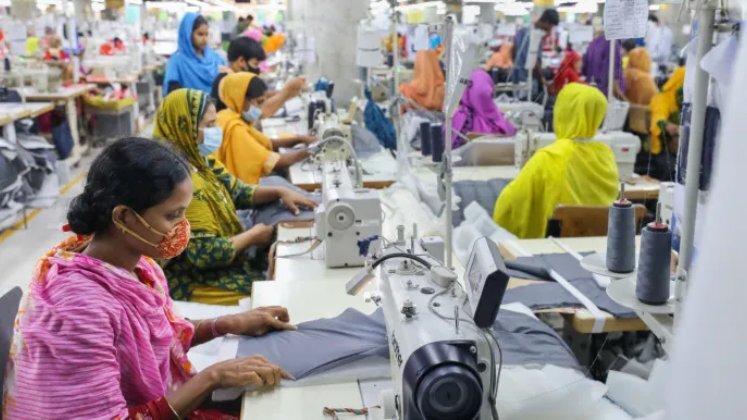
Labour unions representing workers in the country’s garment factories have submitted a comprehensive set of recommendations to the Labour Reform Commission, advocating for significant reforms in the labour sector. Among their key proposals is the establishment of a national wage structure applicable to all workers across various sectors, with annual wage increments aligned with inflation rates.
The unions are also pushing for the implementation of provident funds and pension schemes for workers, alongside legal reforms to ensure a fair share of profits for employees from the companies they work for. The Labour Reform Commission has scheduled a meeting with representatives from the affiliated garment unions under the “Industry All Bangladesh Council” to discuss these proposals.
The unions highlighted the importance of worker protection and welfare. Their recommendations cover a broad range of issues, including job security, the right to organize and bargain collectively, occupational safety and health, gender equality, and measures to address violence and harassment in the workplace. They also call for the ratification of International Labour Organization (ILO) conventions on gender-based violence and compensation for workplace accidents.
Akter further advocated for increasing maternal leave for garment workers from four months to six months, aligning it with the leave provided to government employees. The unions also called for the strengthening of trade unions and the removal of barriers to their formation, along with punitive actions against so-called ‘pocket unions’ or ‘yellow unions’ that serve the interests of employers.
Labour Reform Commission chief Syed Sultan Uddin Ahmed acknowledged the issue of wage discrimination as a significant challenge in the sector, stating that creating a discrimination-free environment for workers is essential. He emphasized the need for improved relationships between workers and employers, highlighting the importance of establishing a solid legal framework to support these changes.
The meeting with the labour unions is anticipated to be a pivotal step towards addressing the pressing concerns of garment workers in Bangladesh.






